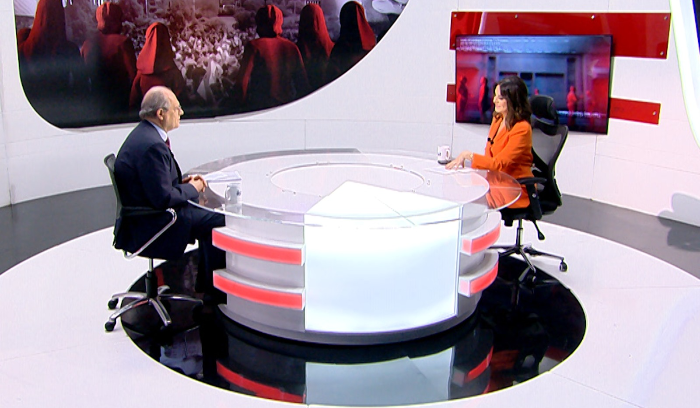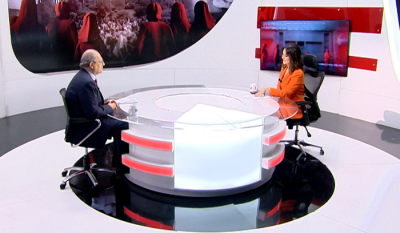The Deputy Prime Minister, Saadeh Shami, confirmed that he "has not given up yet and will not despair of reaching a final agreement with the International Monetary Fund (IMF) until he is sure that there is no light of hope at the end of this long tunnel we are going through." In an interview on the program "Lebanese Scene" on Al-Hurra channel, he noted that he "did not demand the cancellation of deposits," saying, "There is a goal behind those who accuse him of that."
Regarding the possibility of not repaying the $100,000 to depositors, he stated: "If the reserves of the Bank of Lebanon diminish, we cannot repay the $100,000. At that point, we will return as much as we can in dollars and the rest in Lebanese lira at the market exchange rate." He emphasized that "time is precious," saying, "We cannot delay reforms."
He added that "the latest report issued by the IMF was discussed on the first of this month in the Fund's Board of Directors, which includes 24 executive directors representing 120 countries, which made its impact greater." He believed that "the obstruction of reforms mainly comes from the Parliament, specifically the committees and the Bank of Lebanon," noting that "there is also a delay from the government in some reforms."
He pointed out that "most politicians and MPs confirm that they want to agree with the IMF, but at the same time, they want an agreement that suits them." He asserted that "the cost of multiple exchange rates has become much greater than unifying them," expressing his "doubts about whether the political class in Lebanon wants to agree with the IMF or not." He commented that "the delay in Parliament or the Bank of Lebanon indicates that there is no urgency."
He mentioned that "Lebanon is at a dangerous crossroads, but it does not seem that anyone feels this fear to take any steps quickly to get out of the crisis." Regarding the parliamentary delegation that visited Washington and met with the IMF, Shami stressed that "they were going to change the agreement, but they know they cannot change anything."
Concerning the required reforms from the IMF, Shami confirmed that "a small part has been implemented, while the larger part remains," noting that "the IMF is not satisfied with the amendment of the banking secrecy law, while the capital control law has been discussed for three years in the joint committees." He said: "I am not satisfied with the capital control law project, nor is the IMF satisfied."
On restructuring banks, he affirmed that "a nearly complete agreement has been reached on all the proposed items between the IMF, the Bank of Lebanon, and the Banking Control Commission, and the new version can be referred to Parliament, which is a very good version with no issues," adding that "the old version has not started being discussed yet."
Regarding the 2023 budget, Shami confirmed that it is "under preparation," stating that "tomorrow, Tuesday, a meeting is supposed to be held with the Minister of Finance and the working team," indicating that "the budget is expected to be completed as soon as possible." He stated that the delay was due to logistical reasons because employees are not attending.
He added: "The direction is for everything in the budget to be based on a unified exchange rate, which is the Sayrafa rate. Thus, the citizen will pay his tax at the Sayrafa rate. In the 2023 budget, the exchange rate will align with the Sayrafa rate."
Regarding the phase after the Governor of the Central Bank, Riad Salameh, he stated: "A new Governor should have been appointed as soon as possible, even without a President. Any new governor should conduct pure monetary policy, without interference in other matters."
On the presidential election and the Wednesday session, in response to a question about whether former Minister Jihad Azour is the IMF’s candidate, he answered: "The IMF does not nominate anyone; Jihad Azour has a degree of competence and experience to deal with economic and financial issues well, and I support the arrival of a qualified person to the presidency."




